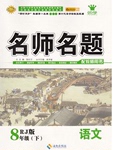题目内容
The porter(行李搬运工) brings your bags to your room and helpfully explains all you want to know.Then he points to the phone and says:“If there’s anything else you need, just call.”All this time you have been thinking of one thing:“How much should I tip(付小费)him?” To make your next trip a little easier, here’s guide to tipping across some Asian countries.
Bangkok(曼谷)
In general, the more westernized the place is, the more likely you will be expected to leave a tip.Some top-end restaurants will add a 10% service charge to the bill.If not, waiters will appreciate your tacking on(附加)the 10% yourself.However, if you’re eating at a lower-end restaurant, a tip is not necessary.If you’re staying at one of Bangkok’s many five-star hotels, expect to tip the porter 20 to 50 baht(泰国货币单位),depending on how many bags you have.Taxis are now metered in Bangkok.Local custom is to round up(凑整数)the fare to the nearest five baht.
Hong Kong
Tipping is customary in this money-mad metropolis(大都市).Most restaurants add a 10% service charge to the bill, but the extra money often ends up in the pocket of the owner. If the service is good, add another 10% to the bill, up to HKMYMl00 in an especially nice restaurant.For HK MYM10 hotel porters should do it at all but the nicest hotels where a new HKMYM20 bill may be more acceptable.When in a taxi, round up to the nearest dollar.
Kuala Lumpur(吉隆坡)
Tipping in Malaysia is limited to the expensive westernized hotels, which often add a 10% service charge to your meal or hotel room.If you are at a hotel restaurant, expect a 10% service charge.
But at local restaurants, there’s no need to add a tip. At five-star hotels, one or two ringgit(马来西亚货币单位)will satisfy a porter. At lower-end buildings don’t feel you have to tip Like Bangkok, many taxis are now metered so you can just round up to the nearest ringgit.
Seoul
Tipping is not part of Korean culture, although it has become a matter of course in international hotels where a 10% service charge is often added.If you’re at a Korean barbecue joint(烧烤处), there’s no need to add anything extra.But a nice Italian restaurant may require a 10% contribution.
If you’re at a top-end hotel, so expect to pay 500~l,000 won per bag.Taxi drivers don’t accept a tip.Keep the change for yourself.
1.Which of the following is NOT the unit of money?.
A.Charge B.Baht C.Won D.Ringgit
2.In which of the following cities is it unnecessary to tip the taxi-drivers?
A.Bangkok B.Hongkong C.Kuala Lumpur D.Seoul
3.If you stay at a five-star hotel in Kuala Lumpur, how much will you pay the porter at least?
A.10% of service charge B.Three ringgit C.Half a ringgit D.One ringgit
4.The writer seems .
A.to tell the readers how to travel
B.to give the readers some advice on how to tip
C.to ask the readers to go on a travel to Asian cities
D.to make the trip more pleasant
1.A
2.D
3.D
4.B
【解析】
试题分析:本文是作者给出的在亚洲各国旅行的时候的给小费的建议。
1.A 细节题。根据文章baht(泰国货币单位)ringgit(马来西亚货币单位)和pay 500~l,000 won说明BCD三项都是货币单位,A不是。
2.D 推理题。根据文章倒数第二段Tipping is not part of Korean culture说明在韩国不流行给小费,自然也就不需要给出租车小费了。故D正确。
3.D 细节题。根据At five-star hotels, one or two ringgit(马来西亚货币单位)will satisfy a porter说明最少one ringgit,故D正确。
4.B 主旨大意题。根据第一段最后2行To make your next trip a little easier, here’s guide to tipping across some Asian countries.说明本文的作者所给出的给小费的建议,故B正确。
考点:考查信息筛选类短文
点评:信息筛选类短文是高考中常见的考查类型,文本所给信息非常丰富,要求考生从中选出适合题目要求的信息。解此类题目时,考生可以先阅读题目和选项,了解具体要求,然后再仔细阅读文章,认真筛选甄别,这样的阅读就有的放矢,可以大大提高阅读的速度和效率。

 优学名师名题系列答案
优学名师名题系列答案完型填空 (共20小题;每小题1分,满分20分)
A Fool’s Day falls on 1st of April. People _31_forget the significance (意义) of the day.
In March 1980, I was 32at Durham University with seven other Chinese students. I had 33 to go to another university after graduation and had 34 application (申请) forms to several 35 . Every morning I arrived at the porter’s office (传达室) and waited my fate. But no 36 came.
On April 1st, as I was eating my 37 , Huang came in , with a toothbrush(牙刷) 38 in his hand. 39 fearing that he might forget the important news , he passed me the 40 . “Morning , Wu,” he said , “I saw Mr. G this morning. He told me that a letter had arrived in his office for you from Manchester University, and asked you to go and get it 41 possible.” I jumped with 42 .
I even didn’t 43 my breakfast and rushed to Mr. G’s office but he wasn’t 44 . I then went to the secretary’s room and 45 everything to her. She opened Mr. G’s room. I looked at everything. There didn’t seem to be a letter for me. “If he had asked you to pick it up from here,” said the secretary , “ he would have put it in 46 or simply left it to me.”
Greatly 47 , I walked out of the room and 48 the secretary lock it. 49 the secretary’s eyes 50 . “Sorry,” she said. “It’s April Fool’s Day!”
1.A sometimes B. never C. always D. seldom
|
2. |
|
|
3. |
|
|
4. |
|
|
5. |
|
|
6. |
|
|
7. |
|
|
8. |
|
|
9. |
|
|
10. |
|
|
11. |
|
|
12. |
|
|
13. |
|
|
14. |
|
|
15. |
|
|
16. |
|
|
17. |
|
|
18. |
|
|
19. |
|
|
20. |
|
 els. I would like to say something about fire regulations(条例) in these hotels.
els. I would like to say something about fire regulations(条例) in these hotels. not be always chained and locked
not be always chained and locked